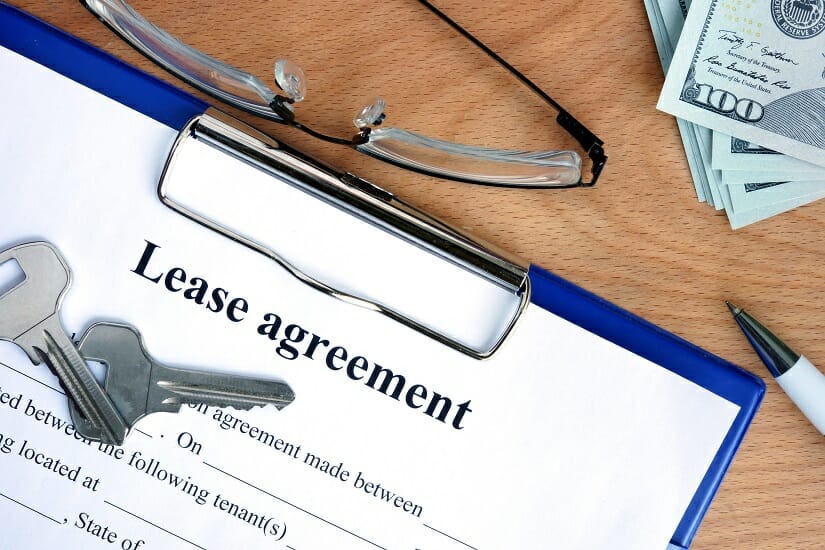
Capital Lease Vs Operating Lease On A Budget: 5 Tips
It is not rocket science, if you have a business of any size and you lease equipment, operating leases are the way to go. In fact, if you have a lower budget, an operating lease is going to be your most feasible option for leasing. But make sure you know what kind of operating lease will work best for you.
Capital Lease Definition
A capital lease is a lease that transfers ownership of the asset to the lessee at the end of the lease term. In a capital lease, you can use this equipment lease as your property and depreciate it on your taxes. The major difference between an operating lease and a capital lease is in how they are treated for tax purposes.
Operating Lease Definition
Operating leases are a type of lease that is generally for the short-term. Think of operating leases as the equivalent of renting your apartment or buying a car on a monthly payment plan. The difference between an operating lease and other types of leasing arrangements is that there’s no purchase option at the end of the term; instead, you continue to rent if you want to continue using the item. An operating lease also differs from a capital lease because it doesn’t allow you to deduct interest paid on such expense as an expense deduction (although some companies may be able to deduct depreciation).
Capital Lease Vs Operating Lease
When you lease an asset, the lease is classified as a capital lease or operating lease.
A capital lease is a long-term (more than 12 months) agreement for the use of an asset that transfers ownership of the property to you at the end of your contract. You’ll make payments during this time and then own it free and clear after that period ends. Capital leases are usually used in real estate or equipment leasing situations where companies need assets with long useful lives but do not want to keep them on their balance sheets until they’re fully depreciated. Earth moving equipment can be a very expensive asset to purchase, so many people prefer to lease earthmoving equipment instead of buying it.
A short-term (12 months or less) agreement is referred to as an operating lease, which means that you don’t gain ownership over your leased assets at any point during its term—you just pay monthly rent instead! This type is usually used when businesses want only temporary access to something like office space or vehicles.
On a Budget: 5 Tips
1. A) Watch the Cost of your Capital Lease vs Operating Lease.
A capital lease is a more expensive option because it’s a loan. Whereas an operating lease is just renting from a company and will allow you to pay for it over time.
An operating lease lets you avoid these types of additional costs since they are only paid at the beginning of your contract with no further payments due until the end (or renewal) date arrives.

2. B) Look Closely at the Terms.
When you’re comparing the different types of leases, look for terms that are favorable to you. These might include the length of the lease period, annual rental payments, and what happens at the end of the lease.
The lessor will also have their own set of preferences with regard to these factors. It’s important that both parties find a middle ground where they can get what they want while still ensuring mutual satisfaction.
3. C) Use Leverage.
You can also use leverage to get the most out of your capital lease. Leverage is the difference between the cash amount of the lease and the value of the asset being financed. For example, if you have an operating lease that costs $200 per month for a car, but it’s worth $20,000 and you pay for it in full at signing (that is, no capitalized costs), then your leverage is 200/20,000 or 1%. You could treat this as though you were borrowing money from someone at 0% interest and investing it at 5% interest.
4. D) Consider the Tax Implications of Capital vs Operating Leases.
The tax implications of capital vs operating leases are another important topic to discuss. A lease is treated as an expense, and not as an asset. This means that the cost of an operating lease is deducted from revenue each year (i.e., $1M annual lease payment = $100K deduction). On the other hand, a capital lease is depreciated over 5 years (usually), while an operating lease has no depreciation associated with it. This makes a big difference when it comes to taxes—but you shouldn’t make your decision based on this alone.
5. E) Start with a Short-Term Lease and Build out from there.
The tax implications of capital vs operating leases are another important topic to discuss. A lease is treated as an expense, and not as an asset. This means that the cost of an operating lease is deducted from revenue each year (i.e., $1M annual lease payment = $100K deduction).
On the other hand, a capital lease is depreciated over 5 years (usually), while an operating lease has no depreciation associated with it. This makes a big difference when it comes to taxes—but you shouldn’t make your decision based on this alone.




